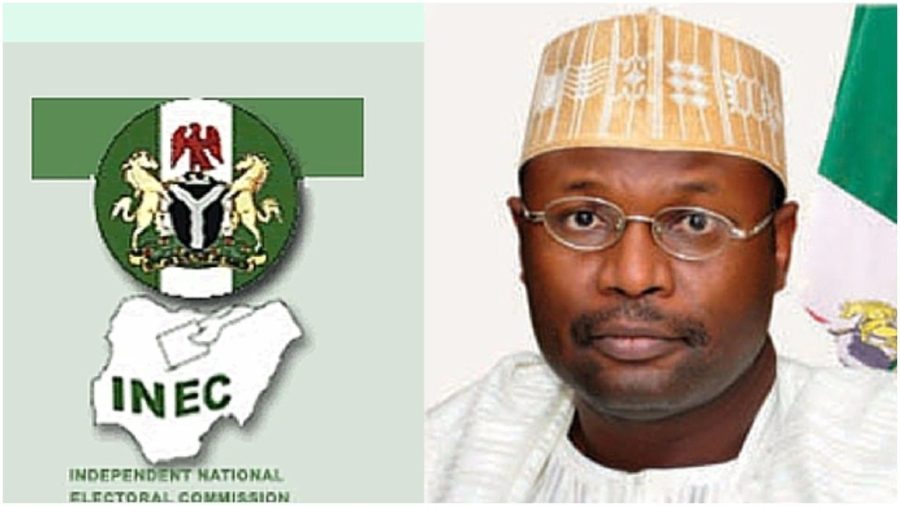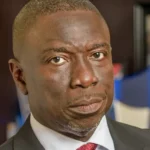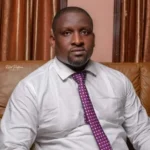With the Edo and Ondo governorship elections scheduled for September 19 and October 10, 2020, respectively getting closer, the habitual propaganda games that normally precede every election in Nigeria have started; with political actors in opposing camps trading attacks.
So far, three allegations have emerged.
- Reps move to bar INEC officers from partisan politics
- By-elections: 10 constituencies awaiting INEC to fill vacant seats
One stated that the Chief of Staff to the President, Prof. Ibrahim Gambari, allegedly invited the Chairman of the Independent National Electoral Commission (INEC), Prof. Mahmood Yakubu, to a meeting at the presidential villa, where he reportedly told him (Yakubu) to rig the Edo governorship election in favour of the ruling APC in return for a second term in office.
An online newspaper equally reported recently that the Senate President, Ahmed Lawan, allegedly called Prof. Yakubu and asked him to do the same thing in return for some favours.
Another online newspaper also reported that a former Senate President, Bukola Saraki, allegedly contacted the INEC chairman to help the PDP win the same election in return for some favours.
The PDP has officially denied the allegation of trying to arm-twist INEC to manipulate the Edo governorship election in its favour.
The party’s spokesman, Kola Ologbondiyan, in a statement issued on July 9, described the report as “fake”.
When contacted, the spokesman of the INEC chairman, Rotimi Oyekanmi, said his boss was not perturbed.
Oyekanmi said, “Not at all; he is used to them (allegations).
“We are in the season.
“In fact, we are all used to such spurious allegations.
“In any case, what is happening now is nothing compared to what we endured before, during and after the 2019 general elections; so there’s nothing new.”
Our correspondent reports that the tenure of the incumbent Governor of Edo State will expire on November 11, 2020, while that of the Ondo State governor will end on February 23, 2021.
Going by the provisions of Section 178 (2) of the 1999 Constitution (as amended) and Section 25 (8) of the Electoral Act 2010 (as amended), election into the office of a state governor shall hold not earlier than 150 days and not later than 30 days before the expiration of the term of office of the last holder of the office.
A total of 17 political parties are participating in the Edo Governorship election, but going by the exchange of hot words between the two strong contending parties – PDP and APC – there are genuine fears that the election may create significant security challenges.
Already, rumours are rife about the stockpiling of arms to be used on the Election Day.
At the Inter-Agency Consultative Committee on Election Security (ICCES) virtual meeting on June 5, the INEC chairman drew the attention of security agencies to “warning signals” and urged them to engage early with the political actors in order to create room for peaceful elections.
It would be recalled that INEC was ready to conduct the last Edo Governorship election on September 10, 2016, before the police and the Department of State Service (DSS) asked it to postpone it, citing security concerns.
The commission was forced to postpone the election to September 28, 2016. Incidentally, the two contenders in 2016 are back again in 2020.
Will history repeat itself?
INEC’s promise
INEC has assured Nigerians that the two governorship elections will be free, fair and credible.
Key reforms introduced by the commission to enhance the integrity of elections include simultaneous accreditation and voting.
This was introduced during the 2015 Bayelsa governorship election following the realisation that the former method of separate accreditation and voting, resulted in the loss of over two million votes in the 2015 general elections.
INEC also introduced the Peoples Result Sheet, officially known as Form EC60E, to enhance transparency in election results management and bolster citizens’ confidence in the electoral process.
According to the INEC Regulations and Guidelines, poll officials must record the result of an election in Form EC60E and paste it conspicuously at each polling unit.
The idea is to enable stakeholders: voters, party agents and observers, to know election results at the polling unit level.
This started with the Anambra governorship election in November, 2017, and it provided the stakeholders with the opportunity of getting the results at every polling unit across the state’s 21 local government areas.
In addition, stakeholders are able to self-collate all the polling unit results and determine the winner of an election before INEC declares the final result.
To ensure that sensitive materials get to their destinations, INEC introduced tracking devices that enabled effective tracking of its vehicles carrying them.
Also, on January 7, 2019, INEC unveiled a new National Register of Voters with 84,004,084 registered voters.
Having inherited almost 70 million registered voters in 2015, Prof. Yakubu and his team conducted the Continuous Voter Registration (CVR) between April, 2017 and August, 2018, within which over 14 million new voters were captured.
Challenges
Low voter turnout, vote buying, violence, court cases and conflicting judgements, kidnapping of collation and returning officers are some of the challenges facing INEC.
The percentage turnout in the 2019 presidential election was 35 per cent.
Vote buying is still a problem; with political actors devising different means of eluding detection.
Arising from the 2019 general elections, 807 post-election petitions were filed in courts, and INEC was joined in all the cases.
Conflicting court judgments have also posed a challenge to the commission.
Our expectations – APC, PDP
Publicity Secretary of the People Democratic Party (PDP) in Edo State, Nehikhare, urged INEC to be transparent, conduct a free, fair and credible election.
“We want INEC to be transparent and correct the mistakes of the past elections such as late arrival of election materials, faulty card readers, among others that hindered free and fair elections,” he said.
On his part, a chieftain of the APC, Henry Idahagbon, urged the commission to ensure the conduct of a ‘seamless’ election in the state.
Also speaking, the public relations officer, Edo State Civil Society Organisations, Osazee Edigin, said INEC should position itself as an unbiased umpire.
“The umpire should ensure electoral rules are adhered to by political parties and citizens,” he said

 Join Daily Trust WhatsApp Community For Quick Access To News and Happenings Around You.
Join Daily Trust WhatsApp Community For Quick Access To News and Happenings Around You.


